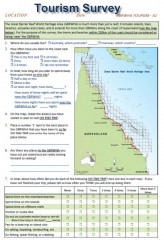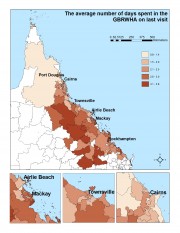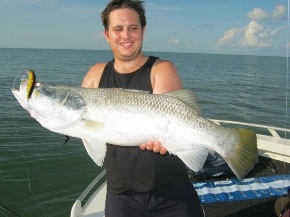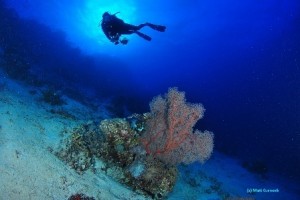NERP TE Project 10.2 - Socio-economic systems and reef resilience (JCU)
Project summary
The Great Barrier Reef (GBR) is famous for its spectacular coral, rich biodiversity and natural beauty. However, none of these important assets are bought or sold in the marketplace, so none are explicitly 'valued' with a price. Recognising that absence of price does not mean absence of value, this project seeks to improve our understanding of these non-market 'values' to a variety of different stakeholders. How important are pristine beaches, iconic marine mammals or healthy coral reefs to the community, tourists and the tourism industry? How would people feel if some of these 'values' were degraded (e.g. if water clarity declined, or if fish were less abundant)?
Why this research is needed
Today's business leaders and policy makers need information that helps them deal with complex problems affecting those living in and around World Heritage Areas. They may need to answer questions such as:
- Would residents be happier, and/or would more tourists come to the region if there were more opportunities to enjoy a region's non-market values?
- What losses would different stakeholder groups suffer if development eroded some of the region's values?
The project will provide vitally important information that will help people in and around the GBR answer questions such as these. It will also help to improve methods for assessing non-market values which can be used throughout the world.
Research-user focus
The project will deliver outcomes that are useful to a range of stakeholders including local, state and Australian government bodies, the tourism sector and environmental managers. Identified research users include the Great Barrier Reef Marine Park Authority, the Queensland Government, Tropical Tourism North Queensland, the Queensland Seafood Industry Association and the Alliance for Sustainable Tourism.
Outcomes
Information generated from this project will help research-users assess conservation, management and marketing priorities and to make predictions about the way in which changes in population and tourist numbers might affect those priorities.
Reports, Publications and News
For more information see Project 10.2 'Socio-economic systems and reef resilience' on the NERP Tropical Ecosystems Hub site.
Images
Datasets
This project focuses on relationships between socio-economic systems and the Great Barrier Reef (GBR). It comprises three interrelated activities to investigate:
1. Resident and tourist views about the relative ‘value’ of key ecosystem services that are provided by the reef. Researchers will design, distribute and analyse the results of a survey instrument to assess the relative value of different goods and services produced by the GBR to stakeholder groups using both traditional money-based valuation techniques and Larson’s non-monetary based technique.

This dataset represents the aggregate of face to face surveys of 2743 visitors to the Great Barrier Reef World Heritage Area (GBRWHA) conducted in quarterly periods from June 2012 to June 2013. This survey was to explore how tourists feel towards and perceive Great Barrier Reef World Heritage Area, as well as their willingness to pay to protect the reef and their satisfaction with current and future developments in and around the GBRWHA.

This data set in excel sheet format presents results of the mail survey of 1565 residents of the GBRWHA. The dataset is accompanied by a set of 58 maps that illustrate key findings.
Project 10.2 explored how visitors and residents feel towards and perceive Great Barrier Reef World Heritage Area, as well as their willingness to pay to protect the reef and their satisfaction with current and future developments in and around the GBRWHA.








